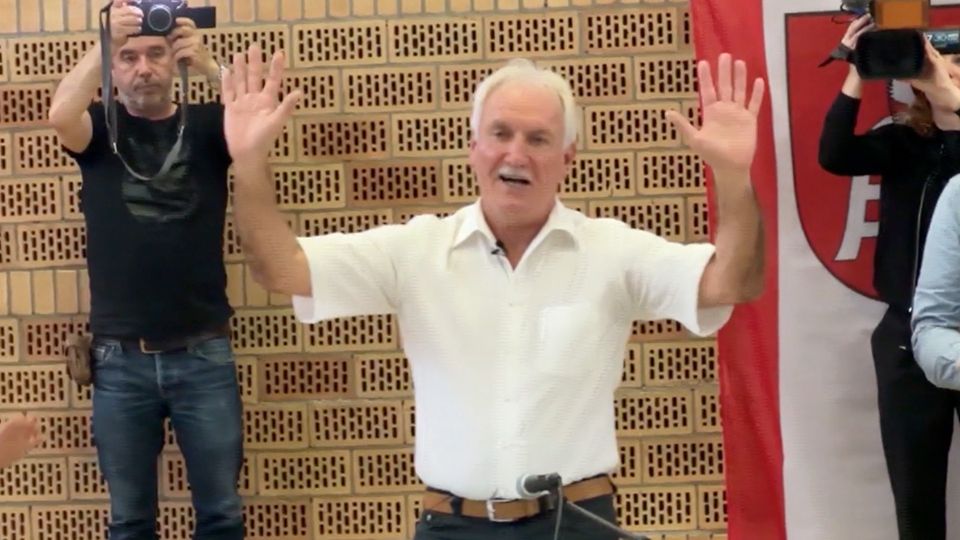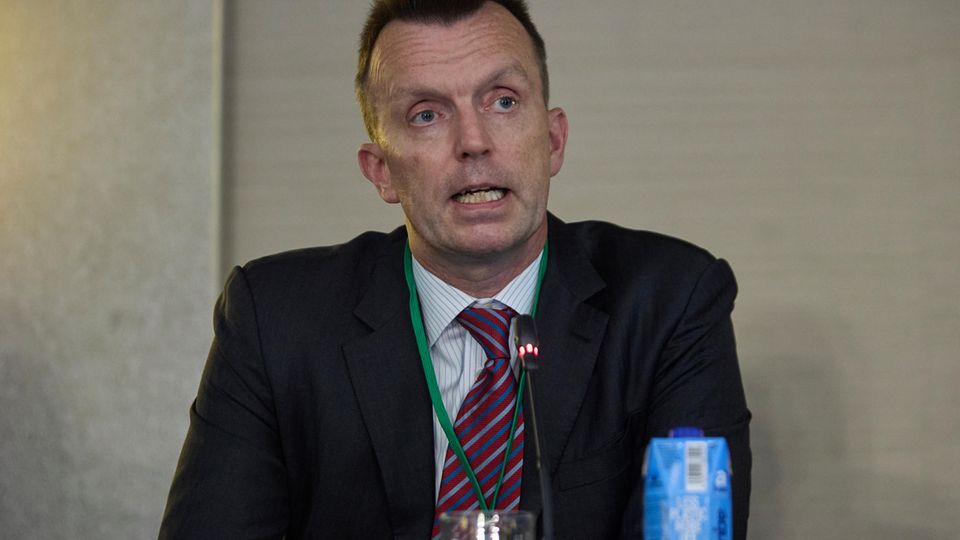In the budget crisis
What next with the finances? Traffic light seeks solution to budget crisis
When it comes to money, things usually get serious – even in the Amepl coalition. Robert Habeck (l.) discusses with Christian Lindner (r.) and Olaf Scholz (m.)
© Michael Kappeler / DPA
Reform the debt brake, cut spending or increase taxes? After the drastic ruling from Karlsruhe, the traffic light coalition is looking for ways out of the budget crisis.
The traffic light government is arguing about conclusions from the Federal Constitutional Court’s budget ruling. Green politicians spoke out in favor of changes Debt brake. SPD party leader Saskia Esken even advocated not applying the debt brake in 2023 and 2024. The FDP, on the other hand, does not want to touch the debt brake and instead wants to put social benefits to the test – they also once again opposed tax increases. SPD leader Lars Klingbeil warned of a halt to modernization in Germany.
In its ruling on Wednesday, the Federal Constitutional Court in Karlsruhe prohibited the retroactive reallocation of Corona loans for climate protection and the modernization of industry. There is therefore a lack of 60 billion euros in the so-called climate and transformation fund, a special fund that is economically separate from the core budget. The big question is how the traffic light coalition will plug this financial hole.
SPD and Greens against drastic savings
Klingbeil told the German Press Agency: “The Federal Constitutional Court’s decision must not lead to us stopping modernizing our country. For us, it is about jobs and ensuring that we remain a strong business location.” Investments and planning security are needed to bring the country into shape. “Germany has rested too much on the status quo in recent years. We feel this every day when trains don’t run or bridges don’t support,” said the SPD party leader.
Green party leader Ricarda Lang also made it clear on Sunday evening on the ZDF program “Berlin Direkt” that she doesn’t think much of strict austerity measures. The logic that the belt now needs to be tightened will not work in the end. “Because that way we would avoid an economic and therefore also a social crisis in this country.” Saving on social issues in particular is not a good idea, because the government must also maintain social cohesion. “We know that right-wing parties in particular repeatedly mobilize people’s social concerns and fears.”
FDP wants to review social benefits
When asked about the Greens’ priorities and where savings could be made, Lang said: “We are welcome to talk about climate-damaging subsidies.” The Federal Environment Agency (UBA) pointed out that environmentally harmful subsidies amounted to at least 65 billion euros in 2018 – no more recent data is available.
Legislation à la traffic lights
The rules are clear. But why make it easy when you can make it difficult?
On the other hand, FDP parliamentary group leader Christian Dürr told the Funke media group (Monday) that the coalition also needs to talk about where the welfare state can make its contribution to budget consolidation. “The fact is that money has to be generated before it can be distributed.” Tax increases, on the other hand, are the wrong way to stimulate the economy and make Germany competitive again as a business location.
Reform or abolish the debt brake
Green party leader Katharina Dröge spoke out in favor of changes to the debt brake. “We Greens have been campaigning for many years to reform the debt brake because it is economically poorly designed,” she told the “Tagesspiegel” (Monday). The rule slows down necessary investments and is “in its current form a burden on Germany as a business location”. It is now becoming clear that the debt brake is not flexible enough to properly support people and companies, even in times of crisis.
The debt brake anchored in the Basic Law gives the federal government only limited scope for taking out loans. Exceptions are permitted in the event of natural disasters and in exceptional emergency situations, such as most recently due to the corona pandemic and the war in Ukraine. The debt brake is one of the FDP’s central election promises, but it is controversial in parts of the Greens and SPD.
Federal Finance Minister and FDP party leader Christian Lindner told “Bild am Sonntag”: “The new legal clarity is not a reason to lower the debt brake, but rather to strengthen it.”

Union sticks to debt brake
The opposition Union warned the government coalition against suspending the debt brake. “The only emergency we have is a political emergency caused by the federal government itself,” said CDU/CSU chief budget officer Christian Haase to the newspapers of the Funke media group. “But there is no economic emergency, otherwise the federal government would have had to declare it shortly after its autumn forecast in October.”


